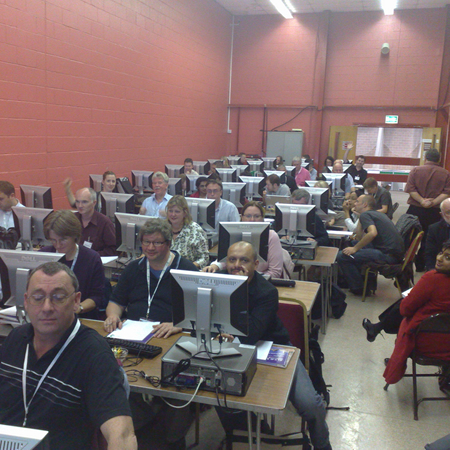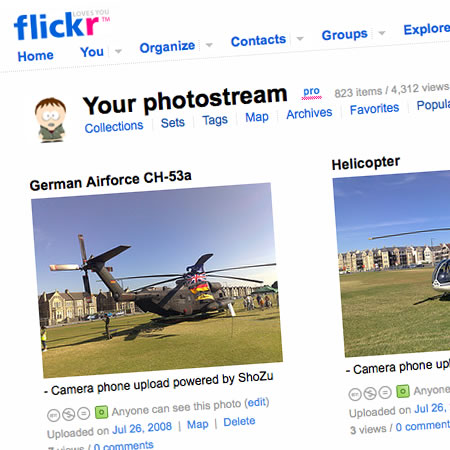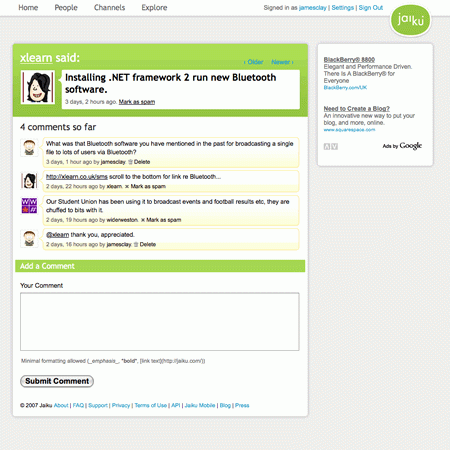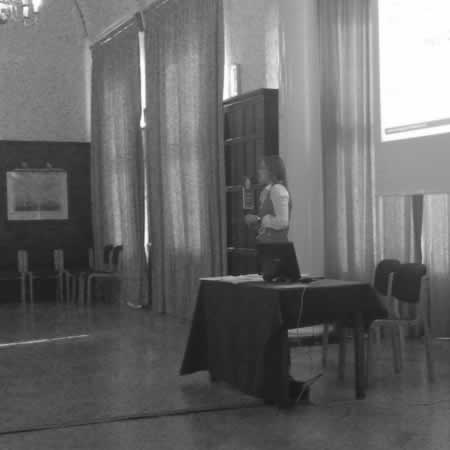One of the things we seem to do in the world of e-learning is categorise ourselves and our learners into groups.
One of the key pieces of work on this was from Marc Prensky on Digital Natives and Digital Immigrants. Now I was never really very happy about this idea that if you were old (like me, well I am not that old, but it’s sometime now since I first sent e-mail, 1987 I think it was) you were only a digital immigrant and young people were digital natives.
However when I looked at the students at my college, I couldn’t see this age divide at all. Yes it was true many of the students were very happy and capable with handing digital devices and playing games, but not all.
We had some digital natives that fitted the description, but we also had a fair few that didn’t. There were students who didn’t and in some cases couldn’t use the internet and the web, not because they hadn’t been immersed in a digital world since birth, but because they didn’t want to. Also there are issues with many students in relation to the digital divide; they may play video games, but don’t have access to the web.
I also couldn’t see how myself fitted into this, I may not fit the digital native sterotype, but I knew (well others told me) that I was very much immersed into a digtial world and used the internet in ways in which they couldn’t fathom or understand. Was I merely a digital immigrant?
From my experiences on the web I met many digital natives and quite a few of them were over forty!
So it was quite refreshing to read on Dave White’s blog a post about residents or visitors to the online world. Like a few others, notably Andy Powell and Josie Fraser, I quite like this concept.
There are some who live in an online world and see the internet as part of their everyday life. This I can identify with. It was for example very strange at ALT-C 2008 to meet Kev Hickey, someone I knew very well from Jaiku. Over the last year we had discussed many e-learning issues and shared experiences of applications, but also I had seen his photographs from Blackpool, I knew the names of his dogs, I felt he was someone I would call a friend.

So it was very weird to actually meet him in person at ALT-C. He is just one of many people I know from online in just my e-learning sphere, better wave to Lisa at this point…
I can quite easily see how that I can be a digtial resident, living part of my life in an online world. I do use the internet a lot and do use a range of online services and applications to make my life easier, to communicate, to share, to drink coffee and to have a bit of fun as well.
Working with many staff in the college (and quite a few students as well) I often find that they are merely visitors, using the online world when it suits them and meets their needs.
I’m reminded of a member of staff at a training session who was quite vocal about being a “technophobe” and didn’t want to use technology in her teaching (note the word teaching and not learning). So basically I ignored her, there were staff there who were interested. As we moved around the room, another member of staff started talking about how she used learning technologies, how she used the VLE and then she remarked on how she used MSN chat to converse with her students at a time and place to suit them. At this point the “technophobe” spoke up and said, “oh I use MSN chat all the time to talk to my daughter in Australia”. For me she is the perfect example of a visitor to the online world, using the technologies when it suits her needs and ignoring the potential that other tools, services and applications could offer her and importantly her learners.
Having said that, on Josie’s Blog there was a comment from Mike Amos-Simpson which I think is worth repeating.
I think that perhaps when its considered as a ‘world’ it maybe makes too many people feel like aliens!
I agree with Mike that calling it a world could alienate people, but then again so does using the terms like digital native and digital immigrant.
So are you a visitor or a resident? Or do you prefer native and immigrant?









